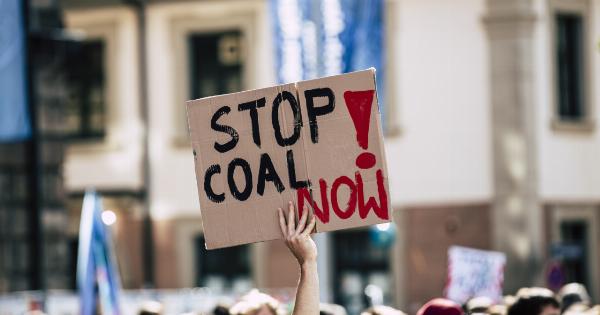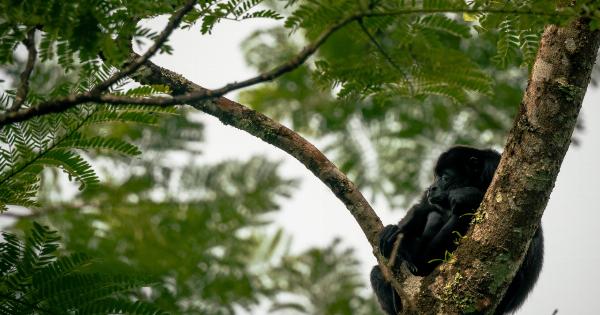Mayorkin, a region in Nigeria, is known for its political tension and civil unrest. The government has struggled to provide basic amenities and meet the needs of the people, leading to widespread dissatisfaction.
The region has a history of unrest, and this is often fuelled by the activities of militant groups such as the Niger Delta Avengers. The group, which is active in the region, has been responsible for several attacks on oil installations and has also demanded greater control over the resources in the region.
This article will explore the issue of revolt with “Delta” in Mayorkin and why it is a common occurrence.
The Delta Factor
Mayorkin is home to the Niger Delta, one of the world’s largest wetlands and a major crude oil-producing region.
For decades, the region has been the source of Nigeria’s vast oil wealth, with oil accounting for more than 80% of Nigeria’s foreign exchange earnings. Despite this, the Niger Delta has remained one of the most impoverished regions in Nigeria, with the majority of the people living in abject poverty.
The residents of the Niger Delta have long felt that they have been marginalized by the Nigerian government, which has failed to address their needs and concerns.
The people of the region have also felt that they have not been given a fair share of the oil wealth that comes from their land. The result has been widespread dissatisfaction, which has often led to violent protests and unrest.
The Niger Delta Avengers
The Niger Delta Avengers (NDA) is a militant group that has been active in the Niger Delta region since 2015. The group’s stated aim is to bring about greater control over the resources in the region and to address the grievances of the people.
The NDA has been responsible for several attacks on oil installations in the region, which has led to a decline in oil production and revenue for the Nigerian government.
The conflict between the Nigerian government and the NDA has escalated in recent years, with both sides engaging in violent attacks. The Nigerian government has responded by deploying troops to the region and cracking down on the militant group.
However, this has only led to further unrest and a worsening of the situation in the region.
Governance Issues
Mayorkin has long been plagued by governance issues, with corruption being a major problem. The Nigerian government has been accused of mismanaging the country’s oil wealth and of neglecting the needs of the people in the Niger Delta.
The lack of basic amenities, such as electricity and potable water, has fueled widespread dissatisfaction and has made the region ripe for unrest.
The government’s response to the unrest in Mayorkin and the Niger Delta region has been heavy-handed, with the deployment of troops and the use of force to quell protests.
This has led to further violence and a worsening of the situation in the region. The government’s failure to address the underlying issues has only served to exacerbate the situation and make revolt with “Delta” a common occurrence.
Global Implications
The unrest in Mayorkin and the Niger Delta region has global implications, particularly for the oil market.
Nigeria is one of the world’s largest oil producers, and any disruption in the country’s oil production can have a significant impact on the global oil market. The attacks on oil installations by the Niger Delta Avengers have led to a decline in oil production and revenue for the Nigerian government, which has had a ripple effect on the global oil market.
The conflict in Mayorkin also highlights the issue of resource control and the struggles faced by resource-rich regions around the world.
The people of the Niger Delta are fighting for greater control over the resources in their region, and this is a struggle that is being mirrored in other parts of the world, such as the Middle East.
The Way Forward
The way forward in Mayorkin and the Niger Delta region requires a multi-pronged approach. The Nigerian government must address the issues of corruption and mismanagement of resources that have contributed to the unrest in the region.
The government must also engage the people of the region in a dialogue to address their needs and concerns and to find a way forward.
The Niger Delta Avengers must also be engaged in a dialogue to address their concerns and to find a peaceful solution to the conflict. Military force alone cannot solve the problem in the region, and a political solution is required.
Finally, the international community must also play a role in addressing the issue of resource control and ensuring that the people of resource-rich regions are not marginalized and left to live in poverty.
The global community must work together to find a way to ensure that the resources of a country benefit all its citizens, not just a select few.
Conclusion
Revolt with “Delta” is a common occurrence in Mayorkin, brought about by the marginalization and neglect of the people of the Niger Delta region.
The conflict in the region has global implications, particularly for the oil market, and requires a multi-pronged approach to find a solution. The Nigerian government must address the issues of corruption and mismanagement of resources, and engage the people of the region in a dialogue to find a way forward.
The Niger Delta Avengers must also be engaged in a dialogue to find a peaceful solution to the conflict. Finally, the international community must play a role in addressing the issue of resource control to ensure that the resources of a country benefit all its citizens.





























